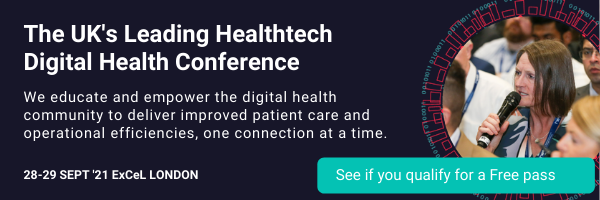Last October, at HETT’s Leading Healthcare Innovation Summit, a panel of Agilisys experts came together to discuss how data can be used to transform healthcare.
The session covered off numerous hot topics around ways the data can be liberated – and the barriers that need to be overcome if the benefits of joining up data are to be realised. A full round-up of the discussion can be found by clicking here.
The discussion concluded by asking the panellists what excites them most about data in healthcare. Here’s what they had to say:
Max Jones, Health Managing Partner, Agilisys:
“For me, data really excites me in the context of how it can help with efficiency and collaboration across the NHS. There are significant vacancies in the NHS, there simply aren’t enough staff members to do all of the things that we want to do. And we have a significant number of people undertaking tasks, which are not at the top of their license. Therefore, we need to find some tools that will liberate that capability.
“I'm looking forward to bringing together technologies like the Internet of Things to capture data with low lag and low burden, the ability of robotic process automation to take out some of the mindless administration, and to bring it all together through today’s collaboration tools – most notably Microsoft Teams – and the cloud platforms that allow us to start to join up some of the care. I think the opportunity for some established technologies to be brought together, and to change the efficiency landscape for our workforce is fantastic.”
Paul Malcolm, Head of Healthcare, Agilisys:
“One of the most exciting areas where data is being used and gathered is in genomics. The UK is a world leader in genomic research, which generates huge amounts of data. But what can you do with that data afterwards? Personalised medicines is one avenue, or you could start to look at rare disease and potential treatment. The use of data in that clinical field is mind blowing and will make a better health care system.
“On a more immediate level, the use of data to run a better system truly excites me. The same ways you would use data in a business apply equally well to healthcare. We have to concentrate as much on the business of running healthcare as we do the clinical impact. It's about admin, it's about paying your invoices and running your HR or scheduling an appointment. It's about sorting the potentially mundane processes that are essential to the efficient running of the hospital and using data to run the system better – to free up people's time to go and do things where humans can have a bigger impact by making decisions and talking to other humans.”
Steve Morgan, Partnership Director, Agilisys:
“Data and the economics of care is what really excites me. Using predictive analytics to identify people who will ultimately require acute care, and then providing effective intervention to manage demand is massively important.
“The average cost of domiciliary care is £16.86 per hour. Acute care costs £400 per person, per night just for the bed. If we look at the budgetary challenges on the back of the pandemic, data and predictive analytics are going to help with the economics, which must be balanced if we are to continue to deliver – and indeed enhance – the high levels of care that we currently do."

.png)
%20(1).png?width=500&height=58&name=HETT%20insights%20logo%20RGB-04%20(1)%20(1).png)
